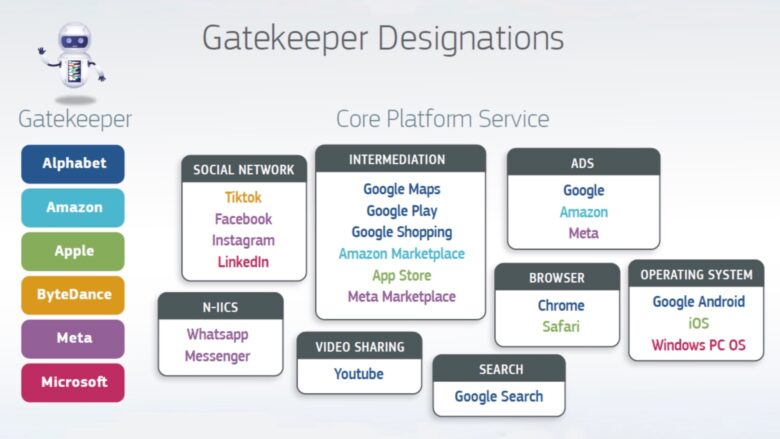Now that iOS and the App Store have been labeled “gatekeepers” by the European Commission, the EU’s Digital Markets Act requires Apple to allow users to install applications directly onto iPhones. And sideloading is just one of the sweeping changes resulting from the DMA. Users apparently will be able to replace Siri with one of its rivals, for example. Other services, like iMessage, might require modification later.
One thing’s clear: The iPhone won’t be the same after the Digital Markets Act goes into effect in spring 2024.
iOS, App Store and Safari face strict regulation after EU labels them ‘gatekeepers’
While the United States has done little to regulate Big Tech, the European Union is stepping up. There’s no better example than Brussels forcing Apple to give up the Lightning port in favor of USB-C. And that’s only the start.
On Wednesday, the European Commission labeled companies like Apple, Microsoft, Google and Amazon as gatekeepers. These “serve as an important gateway for business users to reach their end users,” according to the EC. “The Digital Markets Act aims at preventing gatekeepers from imposing unfair conditions on businesses and end users and at ensuring the openness of important digital services.”
As noted, the most significant change for Apple in the DMA is the requirement to allow iPhone users to download apps from the internet and third-party app marketplaces. That’ll be the end of the App Store being the only option — at least in Europe.
Apple reportedly already began work on allowing sideloading of applications onto iPhone and iPad. However, it’s not yet clear if Apple will make the feature available only in the European Union or if it’ll be a global change.
The EU also labeled Apple’s Safari web browser a gatekeeper. The DMA prevents companies from requiring developers to use a specific browser engine. Apple currently requires all iOS browsers to use its WebKit platform, so that’ll have to change.
Other changes are possible, too. The DMA requires companies to offer the option to use a third-party voice assistant. So, in the future, an iPhone could be controlled by Google Voice or Amazon Alexa rather than Siri.
To be clear, Apple wasn’t singled out. Also on the EC’s list of gatekeepers are Windows, Android, Google Play, Chrome, Facebook, YouTube and many other offerings from big U.S. tech companies.

Graphic: European Commission
iMessage and iPad not (yet) included
At this point, iPadOS has not yet been labeled a gatekeeper, but the EC is investigating the possibility, according to Bloomberg.
The EC is also looking into whether iMessage is a gatekeeper. If so, Apple’s messaging service could be required to be fully cross-compatible with its rivals.
That means iMessage, WhatsApp, Facebook and others could be required to exchange messages and send files. Apple might be required to add support for Rich Communication Services to iMessage, which potentially means the end of blue bubbles versus green bubbles.
The Digital Markets Act is sweeping legislation. Expect to keep hearing about it for years to come. Especially in March 2024, when the DMA goes into full effect.


